Pre-Conference - AI, Music and Improvisation
Improvisation, Ecology and Digital Technology
14-15.10.2021
Schedule is below.
Organizers: Nicola L. Hein (Columbia University, New York) and Prof. Dr. Hyun Kan Kim (University of Applied Sciences Dusseldorf, Peter Behrens School of Arts, Faculty of Design)
The pre-conference "AI, Music and Improvisation" is happening on October 14th and 15th 2021. The first day (14.10) will an in person cocnert event, happening at the NRW-Forum in Düsseldorf, while beeing live-streamed as well. The second day (15.10) will be an online conference event, featuring 5 lectures.
It is the pre-conference to the conference “Improvisation, Ecology and Digital Technology", which will happen at the NRW-Forum Düsseldorf from the 23.-25.06,2022.
The pre-conference "AI, Music and Improvisation" focuses on discussion around AIin music and improvisation, inviting scholars and artists that are experts of these fields, to share their work. The conference will focus on the artistic practices in music using AI and improvisation, which can be considered a collective, emergent organizational process. The ecological, economic and technological crisis we are currently confronted with raises the urgent question of an alternative model of action. The conference will explore the question of whether improvisation can enable a new paradigm in dealing with technology, society and nature in the age of digitalization and AI. Can improvisation offer a practical and theoretical model that meets the challenges of the digital age and reinterprets human-machine interaction through the practice of improvisation? Can an ecological paradigm be derived from improvisation that can replace the classical concept of control and the dualism of mind and matter, technology and nature, subject and object, etc., with a new relationship? Is it possible to derive a new paradigm from improvisation that does not start from separation, exclusion and control, but from relation, inclusion and solidarity? New theoretical impulses from the fields of actor-network theory, new materialism, posthumanism, cybernetics, organization theory, human computer interaction, etc. will be used to take a new
look at improvisation research.
Concert - SOUNDTRIPS NRW - Frith/Anker
Pre-conference "AI, Music and Improvisation" PART I
Thursday, 14. Oct. 2021 (18:00 – 21:30 CEST)
Live concert + Live-Stream - NRW-Forum, Ehrenhof 2, Düsseldorf
Facebook Event
Youtube-Livestream: https://youtu.be/4atViAH9TwI
![]()
Live concert + Live-Stream - NRW-Forum, Ehrenhof 2, Düsseldorf
Facebook Event
Youtube-Livestream: https://youtu.be/4atViAH9TwI
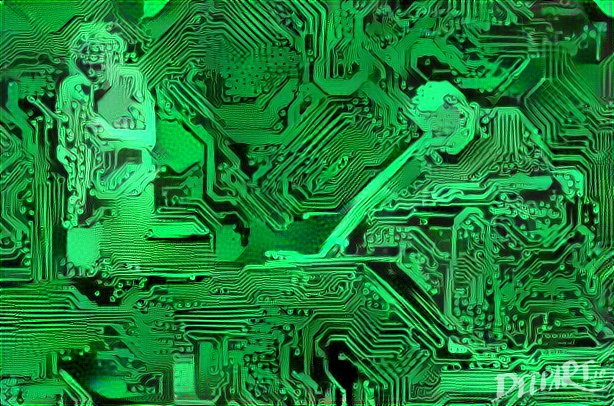
18:00 Adam Pultz Melbye - FAAB (feedback-actuated augmented bass) (Queens University, Belfast)
18:45 Nicola L. Hein - guitar, electronics - Tertiary Protentions (Columbia University, New York)
19:30 – 20:00 Break
20:00 – 21:30 SOUNDTRIPS NRW: Lotte Anker - tenor and soprano sax, Fred Frith - guitar, electronics
guests: Matthias Muche, Adam Pultz Melbye, Nicola L. Hei
Es gilt 3G (Geimpft, Genesen, Getestet) für den Zugang zur Veranstaltung.
Presentations
Pre-conference "AI, Music and Improvisation" PART II
Friday, 15. Oct. 2021 (14:00 – 19:30 CEST)
Online event (Zoom)
Facebook Event (with Link to Zoom)
Friday, 15. Oct. 2021 (14:00 – 19:30 CEST)
Online event (Zoom)
Facebook Event (with Link to Zoom)
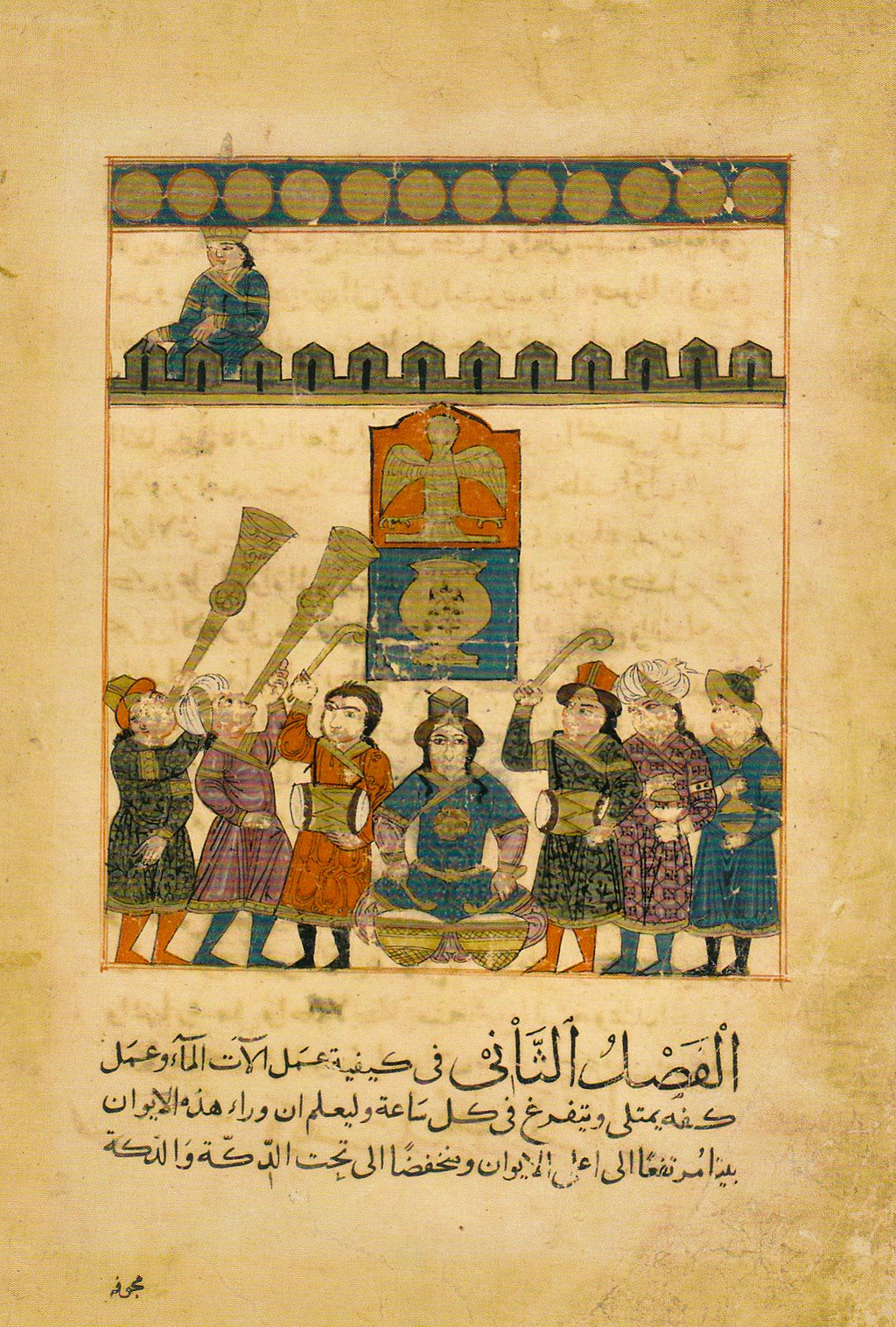
15:00 Opening and welcome: Hyun Kang Kim (University of Applied Sciences Düsseldorf)
15:10 Kıvanç Tatar (Chalmers University of Technology, Gothenburg)
16:10 – 16:20 Break
16:20 De Kai (Hong Kong University of Science and Technology (HKUST) / UC Berkeley)
17:20 Lauren Hayes (Arizona State University)
18:20 – 18:30 Break
18:30 Patricia Alessandrini (Stanford University)
19:30 Georgina Born (University of Oxford)
20:30 End
"AI, Music and Improvisation" wird ermöglicht durch die freundliche Unterstützung des Kulturamtesder Landeshauptstadt Düsseldorf.
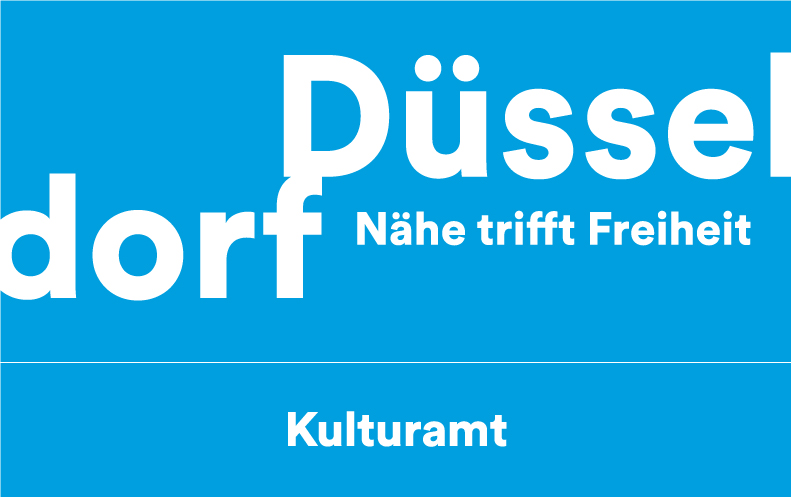
Soundtrips NRW in Düsseldorf wird ermöglicht durch die freundliche Unterstützung von:


Adam Pultz Melbye
Queens University, Belfast
![]()
Queens University, Belfast
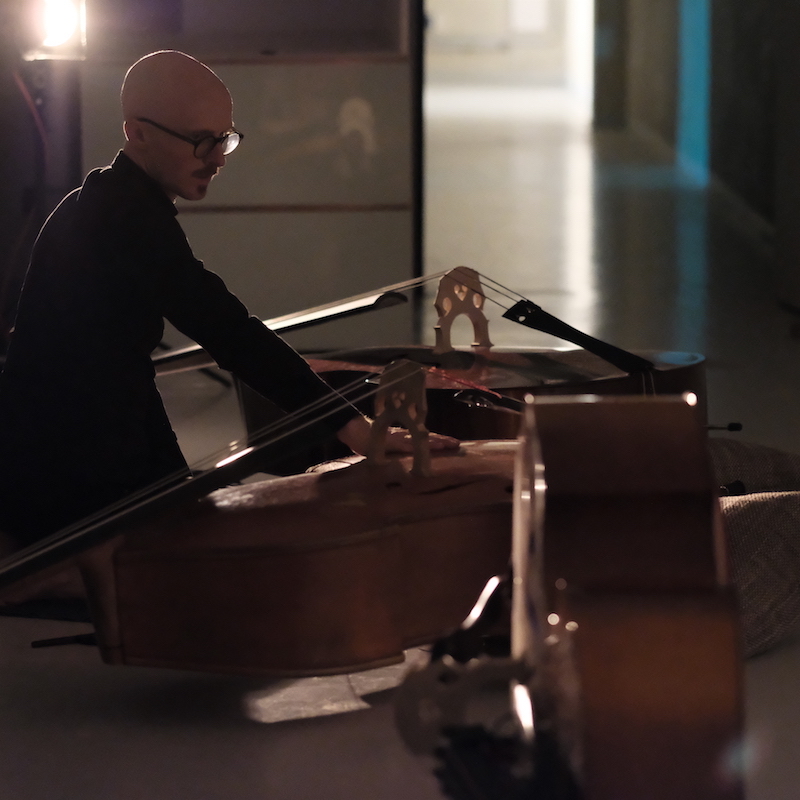
Adam Pultz Melbye – solo performance with the FAAB (feedback-actuated augmented bass)
The FAAB is a double bass modified with quadrophonic pickups, an amplifier and a built-in speaker. Amplifying the instrument through itself causes the emergence of vibro-tactile feedback in the form of self-reinforcing string oscillations, the behaviour of which is modulated by onboard signal processing algorithms. The design ethos of the FAAB is grounded in and inspired by cybernetic theory and practice as well as more recent Artificial Life and complexity theory, the goal being to explore asymmetrical response patterns as well as metastable and adaptive behaviour in a semi-autonomous instrument. This concert will present the current stage of the development of a solo practice with an instrument that affords the exploration of both familiar as well as novel textures, while challenging humanist notions of musical control and mastery. Drawing on posthumanist, feminist and queer theories, the ensuing artist talk will address the problematic nature of mastery and suggest alternative approaches to practicing precarious human-machine relationships, while exploring failure as a driver of creativity.
Adam Pultz Melbye is a Berlin-based musician, composer, researcher and audio programmer. He has released three double bass solo albums and has premiered sound installations and performances at Wien Modern (Austria), Murray Art Museum Albury (Australia), the Danish National Gallery of the Arts and Kunsthal Nord (Denmark). His writing has been published in international journals and conferences and he is currently guest editing an issue on feedback practices for the ECHO Journal at Orpheus Instituut, Gent. Adam is a PhD-researcher at Sonic Arts Research Centre (SARC) at Queen’s University, Belfast.
https://www.adampultz.com/
Nicola L. Hein
Columbia University, New York
![]()
Nicola L. Hein - Tertiary Protentions
Columbia University, New York
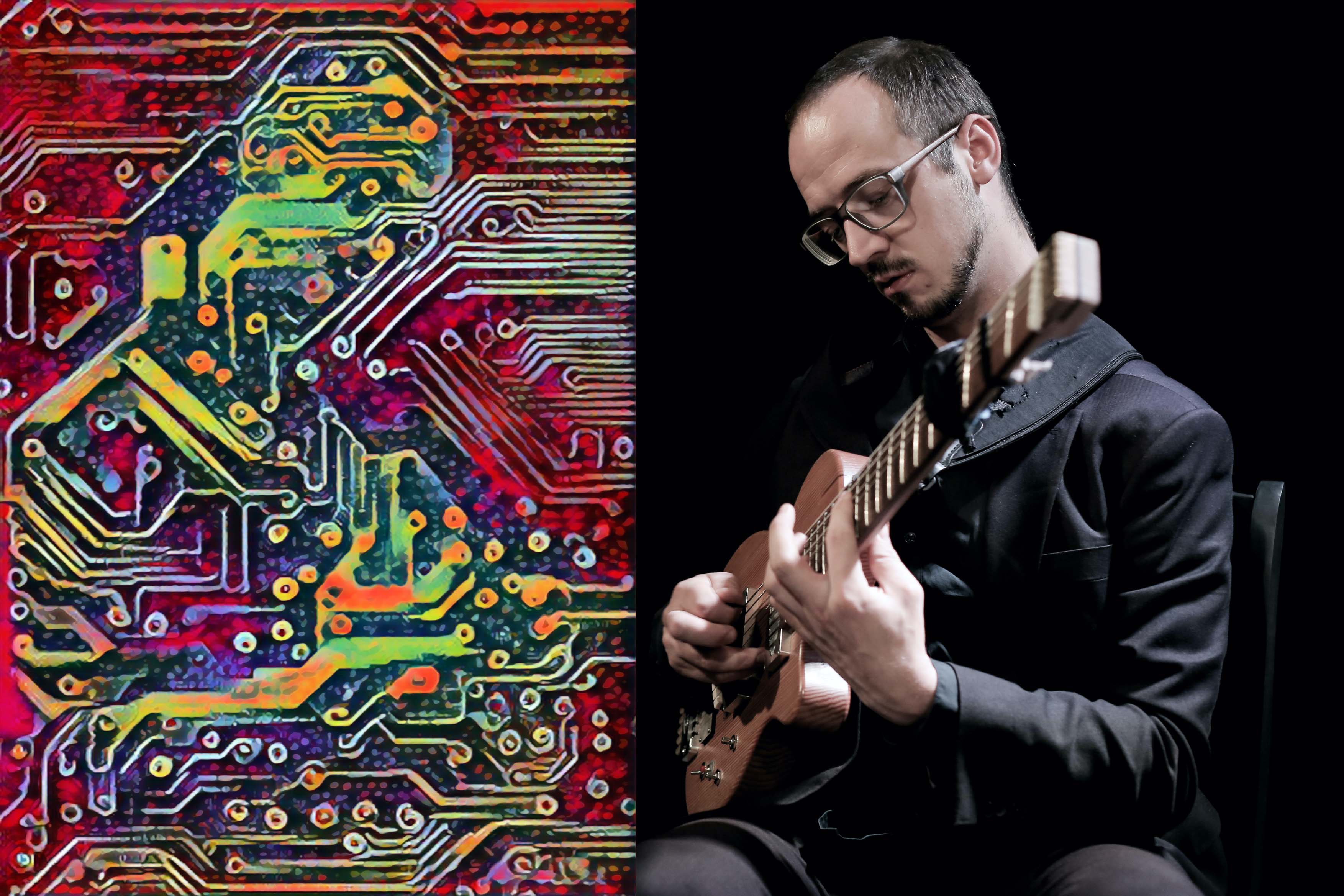
Nicola L. Hein - Tertiary Protentions
Tertiary Protentions is Nicola L. Hein’s solo project working with artificial intelligence in a solo real-time format. It develops a software agent that is capable of learning the human musicians’ musical gestures and idioms in real-time. The human and the machine musician develop an integrative system of musical materials and agency that integrates different strata of action.
The interaction is coined by a form of “cybernetic listening”, the human-machine system’s listening for influx by itself, creating and stimulation a feedback of action between human and machine.
This interaction happens in an intelligently acting multichannel environment, harnessing the potentials of autonomous spatialisation. The result is a play between human and machine, utilizing what the great French philosopher of technology Bernard Stiegler would have called “Tertiary Protentions”: The conception of future by the means of technology.
Bio
Nicola L. Hein is a guitarist, sound artist, composer and researcher in music and aesthetics. His work is driven by the interaction of sound and space, light, movement, thought and the becoming of embodied and intermedial intelligence in aesthetic systems, community and technology. In his artistic work he uses physical and electronic extension of the electric guitar, sound installations, cybernetic human-machine interaction with A.I. interactive music systems, Augmented Reality, telematic real-time art, ambisonic sound projection, instrument building, conceptual compositions. Inter-media works with video art, dance, literature and other art forms constitute another focus of his practice. With the support of the Goethe Institute and many other institutions, his artworks have been realized in more than 30 countries worldwide. He worked with many of the world's most established musicians in the field of sound art and improvised music. Furthermore, he works as a researcher in the field of aesthetics, gives lectures at different institutions around the world and, following an invitation of Prof. George E. Lewis, has been a visiting scholar at the music department of Columbia University in New York, where is currently a PhD researcher.
https://nicolahein.com/
SOUNDTRIPS NRW 54
Lotte Anker - Fred Frith
![]()
Lotte Anker - Saxophon
Fred Frith - Gitarre
Lotte Anker - Fred Frith
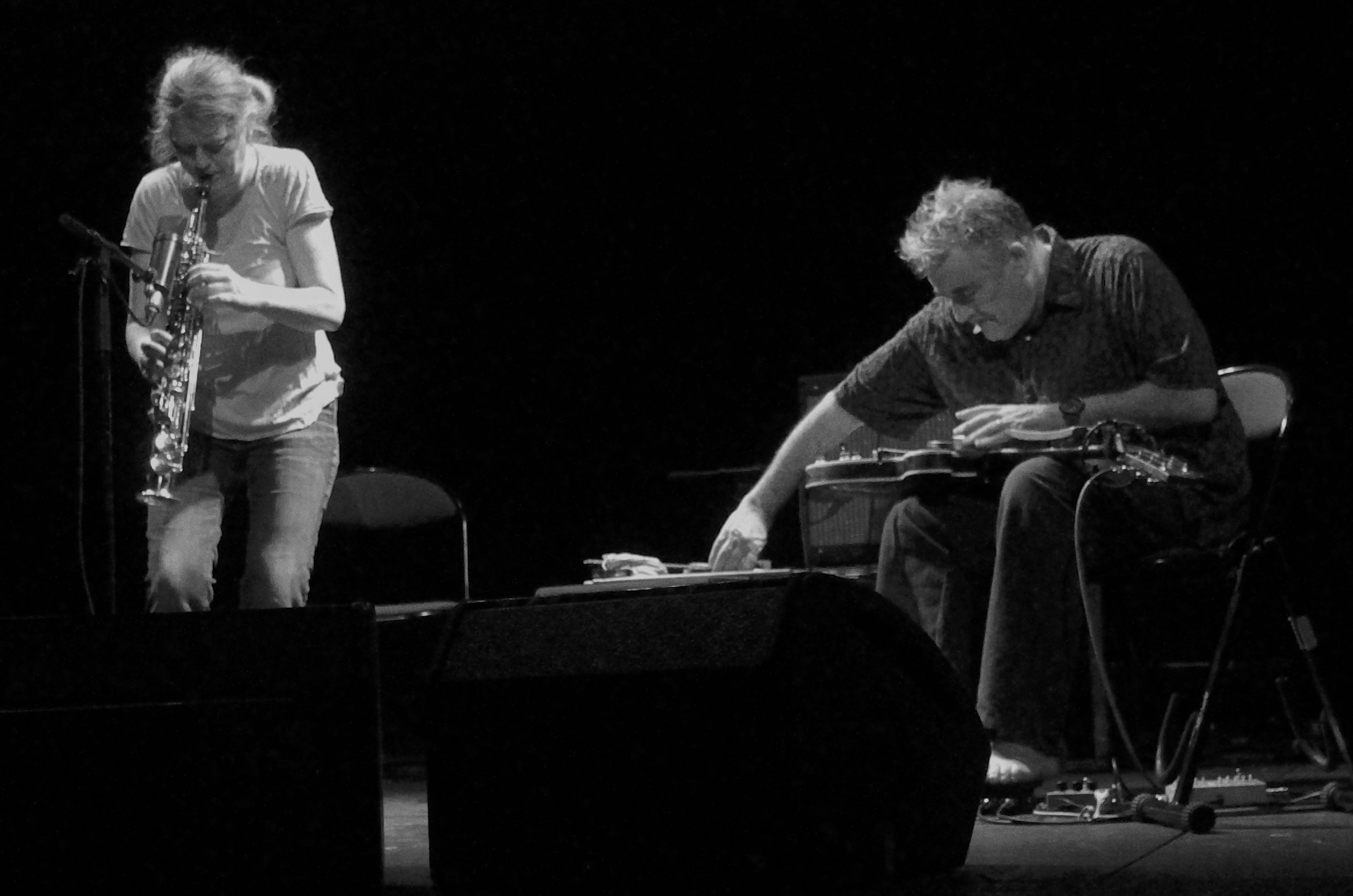
Lotte Anker - Saxophon
Fred Frith - Gitarre
Lotte Anker und Fred Frith arbeiten seit mehr als 10 Jahren als Duo und daneben in verschiedenen anderen Ensembleformationen zusammen.
Als Duo haben sie ein tiefes intuitives gemeinsames Verständnis und Zusammenspiel in ihrer Musik entwickelt, das sich in höchst unterschiedlichen und dynamischen Landschaften entfaltet.
Eine abenteuerliche Musik, die das Jetzt in allem erforscht, von Geräuschen und Klangtexturen, kraftvollem Ausdruck bis hin zu fragmentierten oder minimalistischen Gesten, Einblicken in Melodien, Erinnerung und Stille.
Eine von der Kritik hochgelobte Duo-CD (Edge of the Light) wurde auf Intakt Records veröffentlicht.
Georgina Born
University of Oxford
![]()
Recomposing ‘externalities’: New ecologies of AI music
University of Oxford

Recomposing ‘externalities’: New ecologies of AI music
For some time, certain valuable developments in electronic and computer music have questioned instrumental perspectives driven by an ‘innovation’ telos and positivistic methodologies of human-computer interaction in which technologies are figured through ‘command and control’ or stimulus/response paradigms as ‘tools’ for ‘application’ by a reigning human author-subject. Informed by critiques of these paradigms, the kinds of systems created in response have taken forms such as instantiating a ‘nonhierarchical… subject-subject model of discourse’, entailing ‘communication between two subject intelligences’, where the ‘tool’ is rendered capable of ‘the expression of personality, the assertion of agency, the assumption of responsibility and an encounter with history, memory and identity’ (Lewis). Alternatively, or perhaps complementing this, the very interactive system has been extended conceptually via the notion of an ‘audible ecosystem’ that is ‘in continual exchange with the surroundings and with its own history’ (Di Scipio). Here, feedback between machine, human, musical activity and external environment spreads out from performance, work, ‘text, or software, to become enmeshed in further flung social and material networks’ (Green). In this paper I build on these responses but urge the creative AI music community to go further – to extend how the system is conceived and empractised. In 1998 the STS scholar Michel Callon probed what he called ‘economic externalities’ to point to the way that the science of economics frames its object, the economy. Callon’s prescient aim was to highlight how, routinely, the economy is framed so as systematically to absent from calculation its actual impact on, for example, the environment from which raw materials are drawn and in which toxic waste materials are dumped, or the labouring subaltern populations extracting the raw materials or assembling the silicon chips at the very basis of economic markets. It is the countervailing, Callon-esque attention to bringing those ‘externalities’ back in to how we understand economic – but also social and cultural – processes, impacts and costs that I want to transpose into AI music, asking: what would it mean for artistic practices, and what kinds of ethical and political challenges are thrown up, once the AI music community redefines the boundaries of its activities and brings what are now deemed to be unfortunate ‘externalities’ associated with AI into view as fully part of its responsibilities? And how would our ideas of authorship and the ‘work’ be extended and redefined in this radical light?
Bio
Georgina Born is Professor of Anthropology and Music at University College London. Earlier in her life she worked as a musician with avant-garde rock, jazz and improvising groups. Her work combines ethnographic and theoretical writings on music, sound, television and digital media. Her books include Rationalizing Culture: IRCAM, Boulez, and the Institutionalization of the Musical Avant-Garde (California, 1995), Western Music and Its Others (California, 2000), Music, Sound and Space (Cambridge, 20013), Interdisciplinarity (Routledge, 2013), Improvisation and Social Aesthetics (Duke, 2017), and Music and Digital Media: A Planetary Anthropology (Duke, 2022). She directed the European Research Council funded research program ‘Music, Digitization, Mediation’, has been a visiting professor at UC Berkeley, UC Irvine and Princeton, McGill, Oslo and Aarhus Universities, and has just been awarded a second ERC Advanced Grant for ‘Music and Artificial Intelligence: Building Critical Interdisciplinary Studies’.
Kıvanç Tatar
Chalmers University of Technology, Gothenburg, Sweden

Incorporating Artificial Intelligence Architectures into Artistic Production and Live Performances
Generalized conceptualization of music suggests that music is “nothing but organised sound”, involving multiple layers where any sound can be used to produce music, and strong connections exist between pitch, noise, timbre, and rhythm. This conceptualization indicates two kinds of organization of sound: 1- organization in latent space to relate one sound to another, 2- organization in time to model musical actions and form. In this workshop and performance session, we will be covering different Artificial Intelligence architectures that were developed with the perspective of generalized understanding of music. These architectures train on a dataset of audio recordings using unsupervised learning, which enables them to be incorporated into various musical practices. In this session, we will be covering discrete and continuous latent spaces of audio, and modelling musical form using statistical sequence modelling approaches. The talk will have exemplary, short live performances to showcase these architectures in practice.
Bio
Kıvanç Tatar (Canada/Sweden/Turkey) is an artist-technologist focusing on Machine Learning and Artificial Intelligence for Music and Interdisciplinary Arts. His career aims to integrate Interactive Arts, Contemporary Arts, Science, Technology, Engineering, and Design to research interdisciplinary topics of Art and Technology to create transdisciplinary knowledge. His work has been exhibited across the globe; including notable events such as the cultural program at Rio Olympics 2016, the Ars Electronica Festival 2017 and 2020, CHI 2018, and Mutek Montreal 2018.
He is currently accepted for the assistant professorship in Interactive AI - Ethics and aesthetics of human-machine interaction in art, music, and games; which is hosted at the Chalmers University of Technology and affiliated with the Fine Arts Department at the University of Gothenburg in Sweden. The start date of his position is October 2021. The position is part of WASP-HS, a Swedish nation-wide program on Humanities and Society aspects of AI.
https://kivanctatar.com/
De Kai
Hong Kong University of Science and Technology (HKUST), China / UC Berkeley, USA
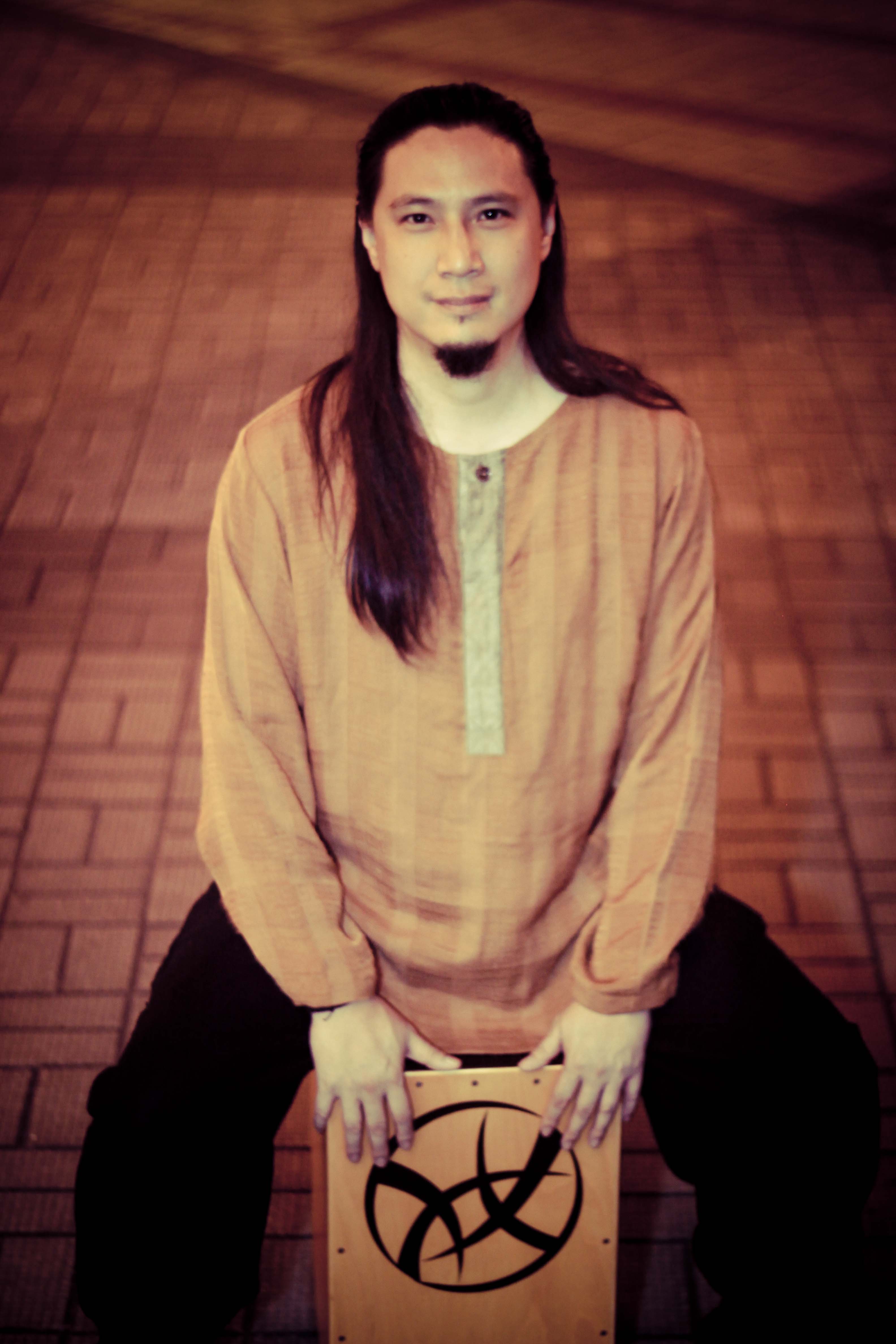
For pioneering contributions to machine learning of the cognitive relationships between different languages, De Kai is among only 17 scientists worldwide selected in 2011 by the Association for Computational Linguistics to be awarded the honor of Founding ACL Fellow, and is a Distinguished Research Scholar at UC Berkeley's International Computer Science Institute. A native of St Louis, he worked and traveled extensively in San Francisco, New York, Germany, Spain, China, India and Canada before joining Hong Kong's ambitious creation of Asia's now top-ranked HKUST, where he developed the foundations of modern statistical machine translation technology, with broad applications in computer music and computational musicology as well as human language processing, and built the world's first public web translation service resulting in global coverage.
De Kai's cross-disciplinary work relating music, language, intelligence, and culture stems from a liberal arts perspective emphasizing creativity in both technical and humanistic dimensions.
A multi-instrumentalist songwriter classically trained at Northwestern University's School of Music, De Kai started piano and composing at age 4 while simultaneously immersed in the improvisational, rhythmic, conversational forms of Chicago's blues, soul and funk. At Berkeley he studied West African polyrhythms prior to years of intensive training on flamenco cajón with a wide range of top Spanish percussionists and dancers.
In parallel with music performance and theory, De Kai began building analog synths at the age of 12. Several years later, he began studying computer music at the UCSD Center for Music Experiment and Related Research (CME / CRCA). At Berkeley he subsequently designed digital additive synthesis chips. His recent work explores the potential of cognitive machines that learn the relationships between various different kinds of musical languages.
During his doctoral studies in cognitive science, artificial intelligence and computational linguistics at Berkeley, he worked on seminal projects on intelligent conversational dialog agents. His PhD dissertation employing maximum entropy to model human perception and interpretation of ambiguities was one of the first to spur the paradigm shift toward today's state-of-the-art statistical natural language processing technologies. De Kai also holds an executive MBA from Kellogg (Northwestern University) and HKUST. His undergraduate degree at UCSD was awarded cum laude, Phi Beta Kappa, and won the liberal arts oriented Revelle College's department award.
In 2015, Debrett's HK 100 named De Kai as one of the 100 most influential figures of Hong Kong.
In 2019, Google named De Kai as one of eight inaugural members of its AI Ethics council, ATEAC (Advanced Technology External Advisory Council).
http://www.dekai.org
Laure Hayes
Arizona State University, Tempe, USA

(A)live Electronics: Improvisation, Technology, and the Enactive Approach
Live music making can be understood as an enactive process, whereby musical experiences are created through human action. This suggests that musical worlds coevolve with their agents through repeated sensorimotor interactions with the environment (where the music is being created), and at the same time cannot be separated from their sociocultural contexts. This talk will investigate this claim by exploring ways in which technology, physiology, and context are bound up within musical activity. I develop this through a reflective enquiry into my experiences as a performer of live electronic and electro-instrumental music, my approach to designing systems for such performances.
Lauren Sarah Hayes is a musician, improviser, and sound artist who builds and performs with hybrid analogue/digital instruments. She is Assistant Professor of Sound Studies within the School of Arts, Media and Engineering at Arizona State University where she founded the research group Practice and Research in Enactive Sonic Arts (PARIESA). Her research centers around embodied and enactive music cognition, enactive approaches to digital instrument design, interdisciplinary improvisation, and haptic technologies. She is Director-At-Large of the International Computer Music Association, and a member of the New BBC Radiophonic Workshop. Her recent 2021 release Embrace (Superpang) was included in Bandcamp’s Best Experimental Music of February 2021 and she was Artist of the Month with the Huddersfield Contemporary Music Festival (hcmf//) in April 2021.
Patricia Alessandrini
Stanford University, USA
![]()
Stanford University, USA
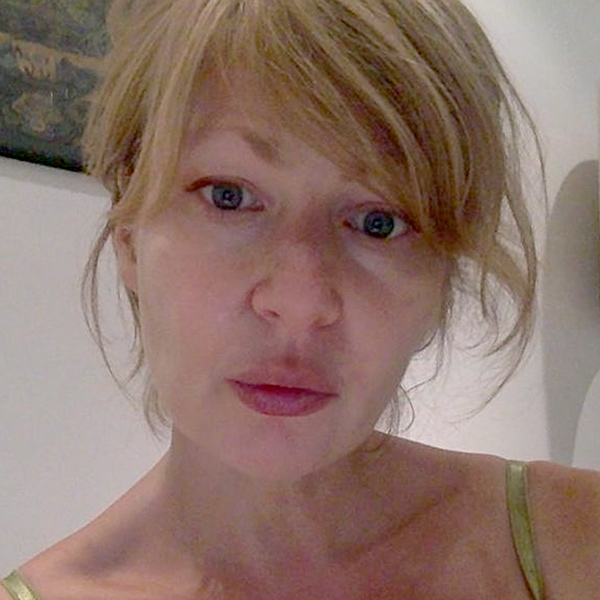
Patricia Alessandrini is a composer/sound artist creating compositions, installations, and performance situations which are most often interactive and theatrical. Through these intermedial formats, she actively engages with the concert music repertoire, and issues of representation, interpretation, perception, and memory. Her works are often collaborative, and engage with social and political issues.
Her works have been presented in the Americas, Asia, Australia, and over 15 European countries, in festivals such as Archipel, Donaueschinger Musiktage, Electric Spring, Huddersfield Contemporary Music Festival, Heidelberger Frühling, Gaudeamus, Mostly Mozart, Musica Strasbourg, Rainy Days, Ruhrtriennale, Salzburg Biennale, and Wittener Tage für neue Kammermusik. She is also a performer and improvisor of live electronics.
She was composer-in-residence at the 2010 soundSCAPE festival, and featured in ICELab with the International Contemporary Ensemble in 2012. In 2015-6, she was featured as a composer, curator and educator in four concert and outreach events of the Ensemble InterContemporain, as part of the Sound Kitchen series at the Gaîté lyrique, a centre for digital arts in Paris.
She studied composition and electronics at the Conservatorio G.B.Martini di Bologna, Conservatoire National de Strasbourg and IRCAM (Paris), and holds two PhDs, from Princeton University and the Sonic Arts Research Centre (SARC), Queens University Belfast respectively. She has taught alto perfezionamento of Computer-Assisted Composition at the Scuola superiore of the Accademia Musicale Pescarese, Composition with Technology at Bangor University, as a Lecturer in Sonic Arts at Goldsmiths, University of London, and was appointed Assistant Professor of Composition at Stanford University in 2018, where she also performs research at the Center for Computer Research in Music and Acoustics (CCRMA), where she performs research on embodied interaction and immersive audiovisual experience, including instrument design for inclusive performance. She serves on the international board of Share Music & Performing Arts.
Her works are published by Babelscores, and may be consulted at patriciaalessandrini.com
Two portrait CDS are due for release in 2022-3: on Huddersfield Contemporary Records and Another Timbre respectively, by Riot Ensemble and other artists.
Hyun Kang Kim
University of Applied Sciences Düsseldorf, Germany
![]()
University of Applied Sciences Düsseldorf, Germany

Hyun Kang Kim is professor for design theory in the interdisciplinary context at the University of Applied Sciences Düsseldorf. From 1990 to 1996 she studied German literature and philosophy at the Yonsei University in Seoul, the University of Düsseldorf, and the University of Bonn. In 2004 she finished her Ph.D. in German literature at the University of Bonn, in 2014 her habilitation in philosophy also in Bonn. From 2006 till 2015 she was a lecturer at the Institute for Philosophy of the University Bonn.
Her Publications include: »Ästhetik der Paradoxie. Kafka im Kontext der Philosophie der Moderne« (Würzburg: Königshausen & Neumann 2004), »Slavoj Žižek. An Introduction« (Seoul: Irum 2008), »Slavoj Žižek« (Paderborn: Wilhelm Fink 2009), »Image« (Seoul: Yonsei University Press 2015), »Bild, Gewalt, Subjekt. Walter Benjamin und die Politik des Realen in der Gegenwartsphilosophie« (not yet published). Besides the monographs Kim published a of variety of articles which include: ”Die Geste als Figur des Realen bei Walter Benjamin“ (in: Fabian Goppelröder/Toni Hildebrandt/Ulrich Richtmeyer (Hg.), »Bild und Geste. Figurationen des Denkens in Philosophie und Kunst«, Bielefeld: Transcript 2014), “Die göttliche Gewalt bei Benjamin und Žižek“ (in: »Büchner und Moderne Literatur«, Bd. 42, 2014.5), “Die Erscheinung des Realen. Die Bedeutung des Bildes bei Slavoj Žižek“ (in: »Y – Revue für Psychoanalyse«, Heft 2014, Berlin: Parodos), “Sprung – Ausnahme – Ursprung. Die Figuren der kontingenten Gründung bei Kierkegaard, Carl Schmitt und Benjamin“ (in: »Philosophisches Jahrbuch«, 2/2015), “Das Ausdruckslose als Paradigma der Unvollständigkeit. Die Figuration einer antimetaphysischen Universalität bei Walter Benjamin“ (in: »Zeitschrift für deutsche Philologie«, 4/2015), “Die Politik der Entstaltung bei Walter Benjamin“ (in: »Weimarer Beiträge«, 3/2015).